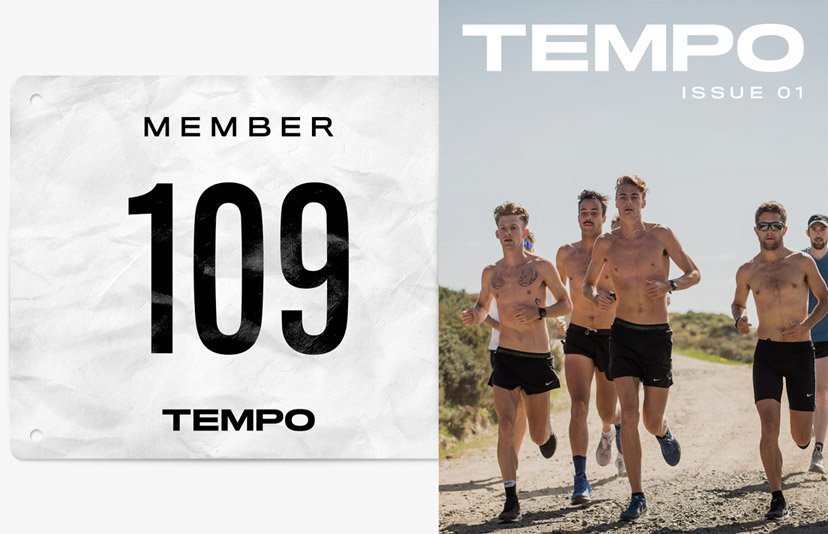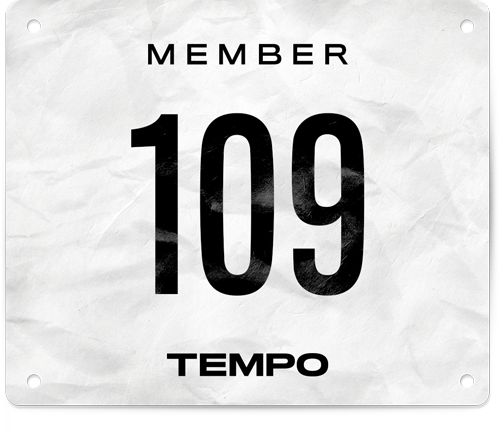Performance
Building High-performance Culture: Part One
A Melbourne Track Club origin story
The usually bustling Tokyo Olympic Village experienced a rare moment of quiet on the final Sunday night of the Games. After two weeks of incessant activity, a stillness loomed. The sound of people had vanished. All that could be heard was the wind-fuelled rattle of national flags lining the main pedestrian mall. Across town, at the closing ceremony, most athletes were celebrating. Marching, smiling. Closing a significant chapter of their lives. Blissfully unaware of a looming void: the eerie quiet that comes with the end of the Olympics.
In an 11th-storey living room in the Olympic Village though, there was a group of athletes and coaches who didn’t attend the closing ceremony. A rare sign of life disturbing the quiet. Huddled together, most of them with a drink in their hand, members of the Melbourne Track Club (MTC) let their hair down. Comfortable and content in their own company, away from the fanfare.
The mood was hopeful. Each person gathered in that living room had an Olympic result to their name. Each result was permeated by varying degrees of pride, disappointment, longing and regret. And, with the men’s marathon completed only hours earlier, some of those results were particularly raw. The notion of hope may seem unlikely when disappointment and regret also coloured each individual’s experience. But it was the energy behind those experiences that manifested around the table. The energy was hopeful.
Conversation focused firmly on the future. How MTC could be better. It was an uninhibited critical analysis. Each person there brought a uniquely important energy to the discussion, one tinged by both pride and determination. It was a true collaboration. There would have been very few Olympians engaged earnestly in goal setting at that moment in time.
“I’ve always seen my role in this sport as helping those that really could achieve. I do that by asking myself, ‘What can I offer this person? What does this person really need to become better?’”
Nic Bideau
Among the group, sitting quietly and listening proudly, founder and coach Nic Bideau could be seen with a smile on his face. Proud not of the last two weeks but of that moment – a snapshot of what he has built over 25 years.
Over its history, the Melbourne Track Club has operated as both a training group, and as an elite athlete management stable, with an emphasis on distance running events. While MTC is known around the world for operating in the high performance arena, it now has a larger mission of inspiring and supporting the pursuit of excellence in the next generation.
The club includes an ensemble of support coaches, all of whom collaborate to provide a training environment where younger, aspiring athletes are surrounded by the elite echelon of the club. Like any well-meaning club, the sustainability of its mission to nurture high performance rests on important intangibles: friendship, good banter and a sense of belonging and identity.
Leading the MTC, Nic has a unique aura. His reputation is a product of the sheer volume of successful athlete journeys he has been a part of. In Tokyo alone, he coached 11 athletes, managed a handful more and filled the role of an Australian Athletics team official.
If you listen to Nic describe one of his earliest mentors – Olympic Champion John Walker – you can’t help but wonder where part of this aura comes from. “Walker is a straight-talker,” Bideau says. “Someone who calls things how they are – brashly and confidently. I liked that style. Straight to the point.” Nic comes across in much the same way.
In the early days of his career, Nic spent a couple of seasons travelling on the European circuit with Walker. “He was really encouraging,” Nic says. “Really helpful to me when I was first around top-level athletics.” Walker offered Bideau a front row seat to an Olympic champion’s process and introduced him to some of the biggest playmakers of professional track and field; it’s a world he’s remained a lifelong student of.
These days, you’ll find Nic up at the crack of dawn most mornings, walking for at least a couple of hours. He often does the same thing at night, too. It hasn’t always been this way, but well-worn hips and knees don’t allow for many alternatives. And it’s about more than just exercise. For Nic, it’s ritualistic and necessarily quiet. It’s time spent doing his best thinking and planning. It’s something that grounds him each day.
Melbourne Track Club has moving parts all over the world. And in 2021, with all the travel restrictions from COVID, those moving parts were even more segregated than usual. Coordinating and overseeing the training and racing of world-class athletes on three continents at the same time is overwhelming to think about.
Arguably making Nic’s task more difficult was the absence of his long-term friend and confidant, the late Maurie Plant. Maurie’s expertise was impossible to overstate: he was a meet organiser, a source of infinite connections on the world circuit of athletics and someone with a uniquely qualified eye for the sport. Maurie could see and interpret things in the sport that most in the sport simply miss. “He’d watch races like I would and examine them like I would. That’s one of the things I’ve found hard about this year – I didn’t have someone to review stuff with as much.”
It certainly puts Nic’s long walks in perspective.
When you think about what it takes to grow something of prominence, time and success are two key ingredients. It takes time to grow, and it takes success to sustain a venture in the long term. MTC has had both of these – it has endured for 25 years and supported more Olympians and national champions than you can count. But MTC’s pre-eminence is the result of something far more methodical than just time and success.
MTC is a case study in high-performance culture. As Nic rode out hotel quarantine on his return from another Olympic journey, he kindly reflected on the history and evolution of the MTC. Seven key themes emerged that speak to the club’s culture.
Putting the athlete first
In many ways, the journey started with Cathy Freeman. When Nic started working with the now-legendary athlete, he knew nothing of 400-metre running. It’s a funny thing to offer your services to someone when what that person needs and what you offer do not align. “I’ve always seen my role in this sport as helping those that really could achieve. I do that by asking myself, ‘What can I offer this person? What does this person really need to become better?’” That mindset is the difference between focusing on yourself and focusing on the person in front of you. When it came to coaching the 400 metres, Nic was forced to drop his ego pretty quickly. And so he brought Peter Fortune to the table – the rest is history.
Nic has obviously grown as a coach over the years; along the way he’s found his niche in coaching distance runners. But the first question has always remained, “What does this person need?” With Freeman, Nic got to work learning about the 400 metres. Connecting with coaches across the US. Building a high-performance environment around Cathy. Assembling training partners, adding a massage therapist in Gary Miritis and locating training bases around the world.
A few years later, young athletes Craig Mottram and Benita Willis would come into the picture. When Nic considered what the pair needed, he approached British coaching great Alan Storey – once coach to Mo Farah – to guide them. “I first got to know Alan well when he was coaching Sonia O’Sullivan. I learned so much from watching their training sessions up at the Kingsmeadow track in London every Tuesday night. Originally, I wanted him to coach Craig and Benita because that’s what I thought they needed. But Alan reassured me that I could do it and encouraged me to take charge myself.”
In many ways, by staying true to the question of what each athlete needed, Nic remained humble where it counted. He always remained curious and, wherever he was, always made an effort to learn from those around him.
One person Nic had around him more than most was his now wife, Sonia O’Sullivan. Nic’s admiration and respect for Sonia is clear. Her performances and her winning mentality captivated him. She was a brave and ruthless competitor, a world champion three times across the track and cross country. She has countless other medals and records to her name, including a famous silver medal in Sydney 2000. “She was a winner. Her attitude made me think differently about what the athlete needed.”
Nic did go on to coach Mottram and Willis. As he had with Freeman, he built a high-performance environment around his two stars. Both won medals on the world stage, a testament to the lessons Nic learnt from Alan and Sonia. Today, Craig and Benita remain two of Australia’s greatest ever.
Read the second part of Nic and Dave’s conversation here.


